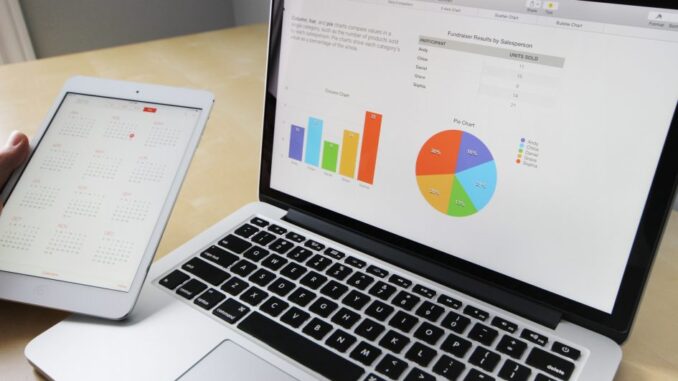
For too long there has been an industry perception that the practice of revenue management was to ‘manage demand’ instead of ‘generate demand.’ However, the new generation of commercial leaders applying their skills to the area of revenue management, and beyond, will have to master both the art of managing and generating business.
Today, revenue management professionals need to build commercial strategies that cover their business goals and their customers’ goals all while aligning with their marketing plans. Cohesive commercial strategies reflect changing market dynamics, who that market actually is (or in the case of operating through COVID-19, how it has evolved), how your hotel intends to be perceived by the market, who you compete with, how your customers are using digital technology and what channels they use.
The overlap of any business and customer goals creates shared value experience, and that value experience contributes to ongoing business success. In revenue management, the key to successful pricing is to match the product or service with the customer’s value perceptions, which should in turn align with the hotel’s overall digital marketing strategy.
Reimagine market segmentation and guest personas
The hotel industry has been highly disrupted as a result of COVID-19 and certain market segmentations may not exist anymore. Now is the time to reimagine your market segmentation based on the early market indicators, such as travel search (or travel intent) data and your own pick up trends. With domestic travel accelerating in most countries, revenue management professionals should quickly identify which micro-market segments any surge in demand is coming from—for example, local staycations. This data can then be shared with marketing executives to analyse the market segments and create guest personas. For example, families with young kids, couples, or friends that would fall under ‘local staycation’ in the leisure segment.
Leverage the right channels
Revenue management professionals should work closely with digital marketers to rethink the various channels a hotel can use for guest communication. Sometimes, it requires multiple online channels to promote a hotel’s rooms and services in order to make an impression on potential customers. Each channel has its own distinct characteristics and user groups. Therefore, it should be chosen thoughtfully. For example, a hotel’s own website can showcase the actual property and communicate the important changes in policies, email is best to communicate to existing customers, and OTA activities should be focused on reaching out to new customers. Social media can also be used to engage guests and fans to solicit feedback and build two-way communication.
Forecast, price and promote
Once the right market segmentations and guest personas have been developed, the next step is to create enticing offers for your target customers. From a revenue management perspective, it’s important to firstly determine when a promotion is needed to boost demand, based on demand forecast, and what pricing is optimal, be it discounted offers, stay-pay promotions or value-added packages. After these elements have been considered, a revenue manager can create accurate promotional offers. However, for digital marketers, the guest booking journey begins much earlier in a sales funnel (be it at any of the awareness, interest, desire or action stages). The guest booking journey might start from promoting a video of the hotel’s facilities and services on social media, sending a welcome-back email to the repeat customers, or simply updating the health and safety protocols on the brand website.
The crossover between revenue management and digital marketing happens when pricing and promotional offers need to be determined. Properties can develop pricing and promotions based on data and analytics which considers guests’ purchase behaviours, demand forecast, optimal pricing and tactical offers to make a higher return through targeted marketing campaigns.
Trust machine learning and automation
Machine learning is not new to the travel industry, having been widely adopted in the revenue management and digital marketing fields in previous years. Revenue management systems rely on machine learning and automation to empower a property’s forecasting and pricing decisions to optimise performance. Digital marketers also use machine learning in the systems that bid for key words dynamically. Savvy hoteliers today rely on machine-learning systems to consolidate and analyse a tremendous amount of data, while allowing their executives to focus their time on establishing commercial strategies and translating insights into action plans.
Align KPIs
In an era of increasing convergence and collaboration, aligned analytics or KPIs become a priority for demand generation and management roles. Revenue managers primarily use metrics such as occupancy, ADR and RevPAR. Where digital marketers use impressions, conversion rate, a customer’s lifetime value and cost per acquisition. When properties adopt a more strategic commercial approach, aiming for total revenue and profit optimisation, metrics such as TRevPAR (total revenue per available room), NetRevPAR and guest value should be prioritised over all others.
Building demand is only one piece of the puzzle
While a hotel’s commercial team has a responsibility to forecast, generate and optimise demand, when the guests arrive at the property, it is the operation team’s responsibility to create the best experience possible for the guests. A positive guest experience, supported by a property’s operations team, can enhance guest loyalty to a brand and property, potentially converting them into repeat guests. The more repeat guests properties have, the less spending is required to acquire a new customer by the commercial team.
Collaboration will be key
As a result of the large-scale industry disruption brought about by COVID-19, many traditional roles like sales, marketing, distribution, and revenue management will be consolidated under the umbrella of a commercial team. As part of this shift, hoteliers need to review the functionality of traditional departments, leading to closer working relationships between revenue managers and marketing departments in pursuit of total revenue generation and profit optimisation.
This report was contributed by knowledge partner:
The post How revenue management and digital marketing work together to drive demand appeared first on FHA-HoReCa.

Leave a Reply